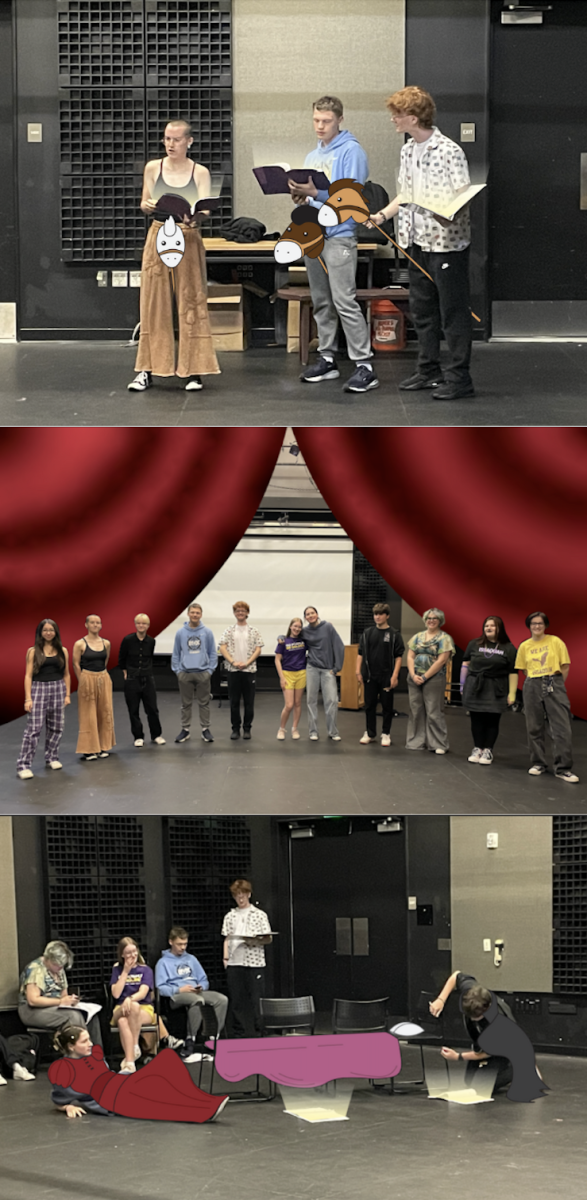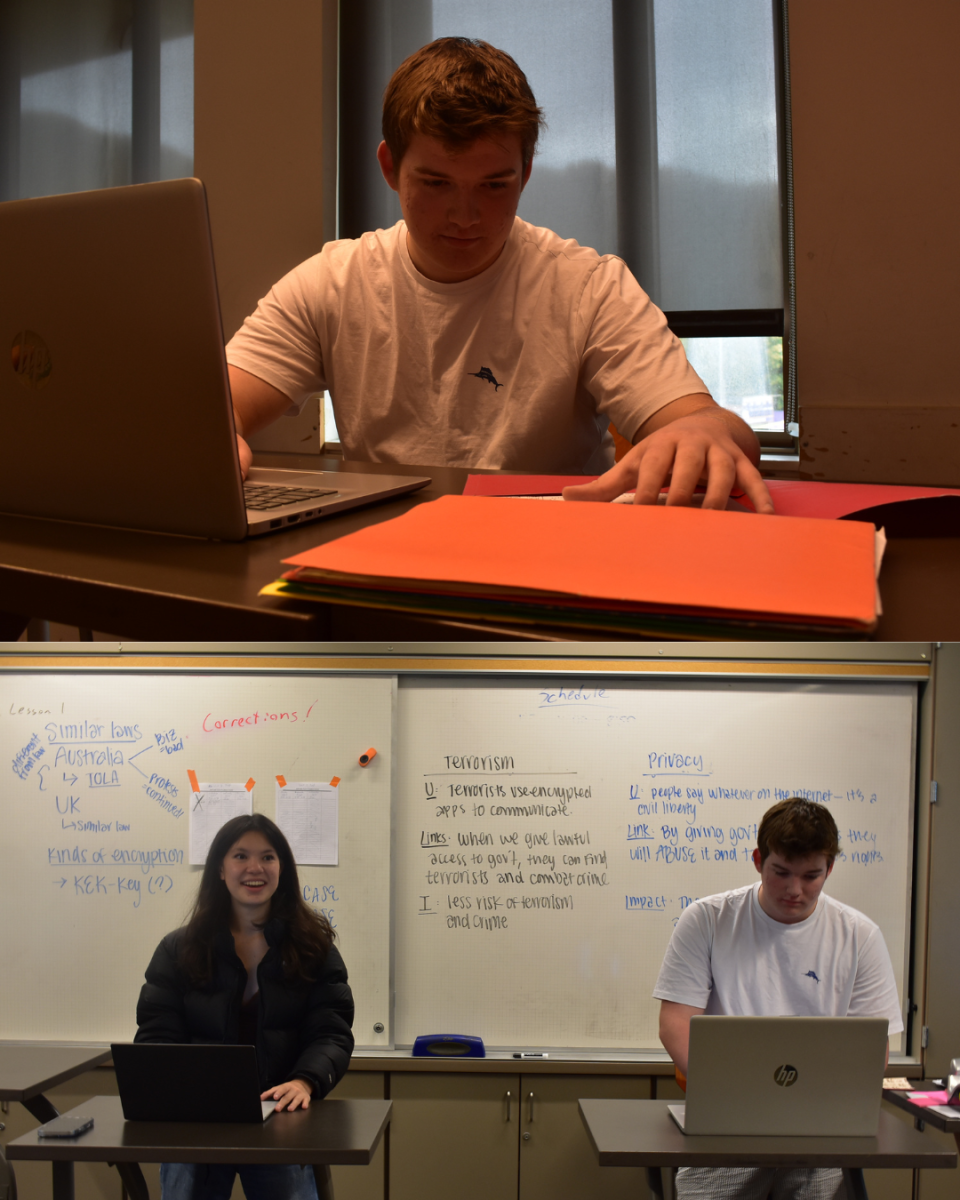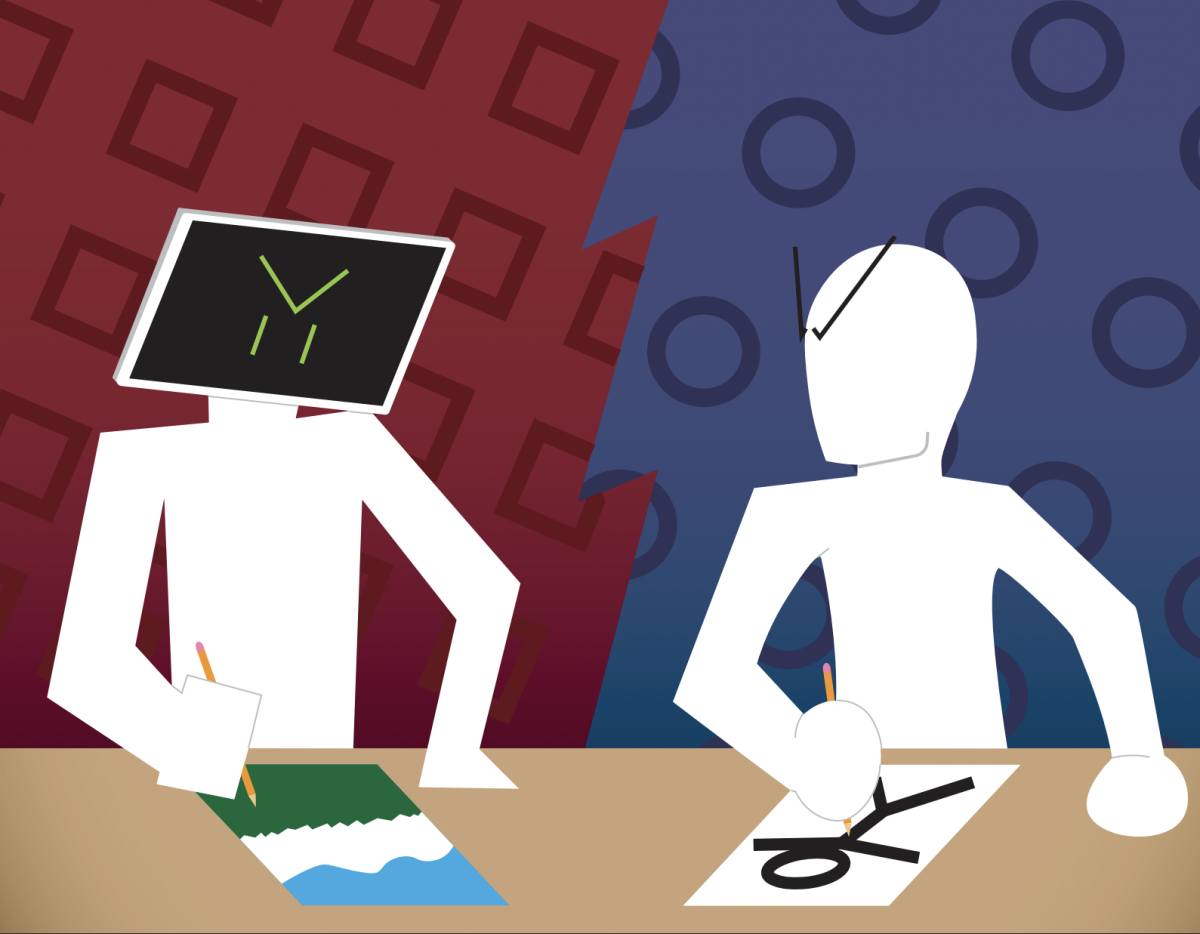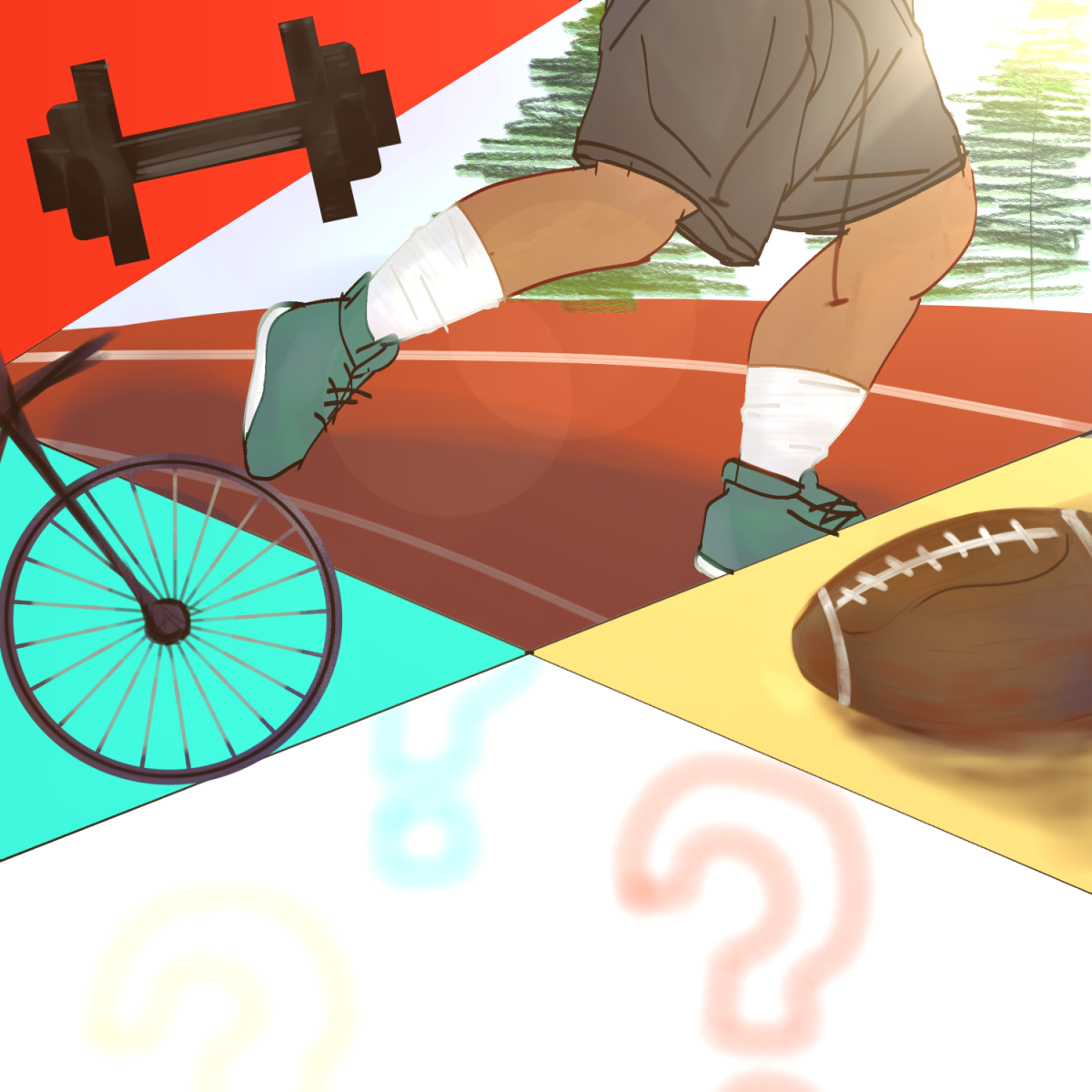Dream of a world where Dracula was never a horror play and instead was a comedy. Can you see it? Well, now you do not have to dream because with Halloween around the corner, our school is getting into a spooky fashion with our own coming-of-age comedy. Dracula: A Horror of Comedy is a play abundant with laughs, acts, and fun, a new perspective; you might say on the spooks of Dracula. Though the play is still a couple of weeks away, the actors were profiled to shed light on their processes and why they are passionate about this play.
Many plays have turned from horror to comedy and have seen success as they continue to be adapted and used by the next generation of aspiring actors. As we look at this play’s beginning, we reflect on other popular plays of our high school past, like Shrek, Macbeth, and Little Shop of Horrors. All of these have had an edge of comedy in them to try to make them a little more lighthearted while also keeping close to the true story.
We interviewed a couple of the actors and the director to get what roles they play in this over-the-top exaggeration of Dracula and how they get ready for their roles:
Director (Ms. White): Ms. White describes the play as a satirical version of the traditional Dracula story, saying “[Dracula] is trying to essentially seduce everybody because he wants to, you know, suck their blood,” and explains how the crew has embraced this over-the-top exaggerated character and is having fun with it. She specifically mentions the amount of work and emotions put into the play: “I think that drama or any sort of thing like journalism or if you’re on a sports team, those are the things, the experiences kids remember in school, right? Their hearts, minds are all in on it”
Dracula (Carter Underwood): Dracula is the main character in the play, and Carter Underwood’s confidence in himself and his team makes him the perfect person for this role. He reflects on his theater experience in the last few years, saying, “We have a new director in Ms. White this year. We had Ms. Henderson through the past few years, so it’s a little bit of a learning curve, but it’s going well and we are on schedule.” He describes his most proud moment as perfecting Dracula’s “sexy voice”.
Lucy (Leighton Wilday): Leighton Wilday plays Wildat in this production. To prepare for the play, Wilday depicted a lot of breathing exercises, rehearsals and memorizing the lines of the play, and asking directors for guidance. In terms of the public-speaking aspect, they said “It’s not speaking. It’s really not. I think that, for me, the idea of the show is scarier than performing during the actual show. Before I go on, especially on opening night, when you’re thinking about it and you’re 5 minutes from going on, it’s scarier.” They also described the mental aspect of being on stage, and how the fear just goes to the back of your mind once muscle memory takes over. Wilday auditioned because of their love for the theater community. Wilday finished off by listing their inspirations: “Ms. White, Ms. Henderson, and Ms. Les. And Miss Turner, even though she’s not a part of this, I think they’re all very inspirational and they make me want to be better at this”.
Van Helsing (Ruby Strojanoff): Strojanoff was excited for the role of Van Helsing while describing how she works on trying to do their best by saying: “working on memorizing my lines 1st and getting those words down, and then, like, I get them perfect, and then, like, doing the accent on its own, and then also breathing”. With them saying they were making the comedy very “flamboyant” with a bit of not really taking the play too seriously. They said they came into the theatre looking for attention but ended up appreciating the community it gave them.
Westfeldt (Jacob Rao): Jacob Rao plays Dr. Westfeldt in the play. He described getting ready for his role by using rehearsals and blocking (physical placement of where actors will be during the play) consistent with their lines. Rao, when asked about how the theatre team works said: “as there are no real teams but it’s more seemingly individual with a director to help. The most stressful parts are tech week where everyone stays till 10 p.m. and worries about if other classwork will be turned in on time.” This play is supposed to be a play that makes you laugh because it does not really take itself very seriously. There are more jokes in the play because of how it is written to be more comedic than like the original play.
Dracula: A Comedy of Horrors opens on Nov 19. and continues through the 22nd. We hope to see you there with your best impressions of Dracula. Bring your smiles and laughs and we will bring the show to you.













